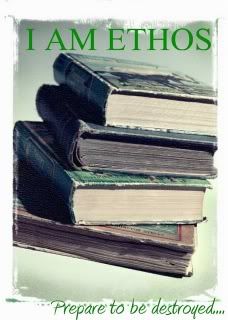How is it that I have come this far into my education, and my education in writing specifically, and I have yet to read any of the seminal texts Elbow has authored?! The CAWP ISI presented (and we practiced) bits and pieces of strategies offered by many of those we have been reading, but Elbow seems to be someone we simply should have studied more in depth, if that’s possible in a four week course.

In reading Elbow’s response to Harris’ book, I found his voice seemingly familiar, friendly, and completely bought into his brand of “ethos,” of “equating voice and ethos” (29). I empathized with his irritation towards Harris, and when he admitted he had to force himself to read objectively. I agreed with his counter - arguments. I even followed and agreed, perhaps naively (a term Elbow uses to describe one of Harris’ suppositions), when he brought the reader to a compromise of sorts at the end of his response, wherein he praised the usefulness of Harris’ model for discourse types after taking her “to task” for the inadequacies of her arguments, histories, and suggestions. However, the entire time I was reading and empathizing, the voice in my head quietly but continually repeated a quote from Burnham’s piece as he quoted Elbow, “...ethos – good character – is the central concern in all rhetoric... It’s nice to be trustworthy; but if you’re skilled you can fake it’ ” (29). Of course Elbow has his own agenda as he responds to Harris’ book; he is, after all, a core member of the Expressivists. That being said, I thought he did a fine job of representing the Expressivist perspective of voice, in the sense that voice has the ability to “empower individuals to act in the world” (23). He succeeded in “communicat[ing] intense belief through voice” (24).
As I continue to place more stake in the tenets of Expressivism, I (like Elbow) must continually look for the good in other movements, philosophies, and strategies so as not to ignore their value and contribution to the study and teaching of writing. Prior to teaching it was easy to be an “all or nothing” believer. But, as I teach and learn, I am finding that there is almost always something worth mining and trying in every philosophy.
This week I get to teach my students strategies for removing their voices from the research papers they have worked tirelessly to draft and revise, repeatedly, for the past eight weeks. They will be omitting or replacing all first and second person personal pronouns to meet the curricular requirements of our course. Perhaps we will engage in some reflective writing regarding this directive and then discuss how it makes us feel when we as writers are compelled to extricate our voices from the text we have worked so diligently to create. Perhaps my students will find ways of retaining their voices, regardless of pronoun usage. (This is my goal.) Instead of being angry and feeling oppressed by outdated curriculum and the unreasonable, Current-Traditional expectations of our postsecondary “partners,” I will see this as an opportunity for us to write for yet another purpose, thereby enriching our writing experiences and ability to perform in yet another rhetorical situation. (Sigh.)